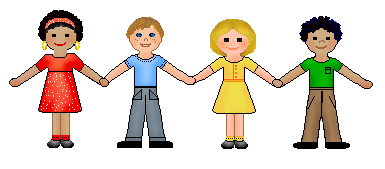The purpose of this short study is to further strengthen my understanding of Māori concepts and principles to evaluate how they can be identified in the context of what I observe in my daily practice as an early childhood teacher. Based on this evaluation I hope that I can incorporate an outlook to further develop my bicultural practice.
There is no clear English definition of manaakitanga as my online search found a number of different definitions under this Māori principle. The Māori dictionary defines manaakitanga as 1. (noun) hospitality, kindness, generosity, support - the process of showing respect, generosity and care for others.
There doesn't seem to be any singular meaning to manaakitanga but from what I can gather it incorporates a number of different meanings in different contexts. The root word manaaki suggests concepts around kindness and respect.
After reading this initial description of manaakitanga I felt that there was a connection or link to our curriculum as the broad meaning weaves in to the strands from a holistic approach and perspective. For example, “Children's learning and development are fostered if the well-being of their family and community is supported; if their family, culture, knowledge and community are respected; and if there is a strong connection and consistency among all the aspects of the child's world” (Ministry of Education, 1996, p.42). This could relate to manaakitanga as it looks at the child's well-being in a holistic sense.
From a teacher perspective I often have a kōrero with children around caring for the environment. This has also included our indoor environment where tamariki need to demonstrate a caring and respect for the resources that are theirs to explore and play with. These discussions and meetings often set the ground rules which are established by children, and when necessary they can then be reminded of their own rules that they have set for themselves.
Nurturing and building on relationships is also manaakitanga, an essential element within the framework of an early childhood environment. I relate this aspect of manaakitanga to the 'Incredible Years Programme' where they acknowledge the importance of building strong relationships with tamariki and whānau.
Respect in my opinion is an extremely important value to comprehend and an important concept for tamariki to be aware of as they develop in to capable and competent learners. I have found that the best way to demonstrate this value is to show it in my own interaction with children, whānau, colleagues, and the environment I am in. The attitude we demonstrate in an early childhood environment is picked up by tamariki and that is why I consider it extremely important to model this value.
A while ago we used to visit a rest home that was quite close to our centre. In many ways I thought this exposure to the elderly and their attitude and behaviour there offered the children a platform to respect elders. During these visits it never ceased to amaze me when I saw the rest home residents faces brighten when they interacted with young children.
As I continue on my journey to build on my bicultural practice I hope to investigate other Māori concepts and principles for my own understanding and how I can identify with them in an early childhood setting.
References
Māori Dictionary - http://www.maoridictionary.co.nz
TKI - http://hereoora.tki.org.nz/Unit-plans/Unit-8-Te-marae/Some-key-marae-values-concepts-and-practices
Kōrero Māori
Te Whāriki. He Whāriki Mātauranga mō ngā Mokopuna o Aotearoa (1996). Early Childhood Curriculum. Learning Media, Wellington.
